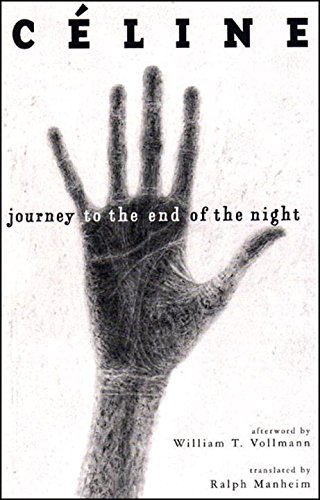- Date: 25.08.2009
- Book: Journey to the End of the Night
- Author: HardBoiled
Review
Celine's savage and nihilistic novel tells the disturbing tail of the anti-hero, Ferdinand Bardamu, and his involvements in the first World War, his adventures in French speaking Africa, and his escape to America to work shortly at a Ford Factory in Detroit only to return to France were he sets up a failed practice it the poor suburbs of Paris. During his travels he becomes dreadfully distrustful of people and expresses unrelentful disgust toward society and of modern day life as he abandons whatever optimism and morality he had, seeing it as unneeded baggage on his life.Journey to the End of the Night is seen as one of the most important pieces of literature of the Twentieth Century for its stylistic narrative. Its explosive and maniacal style, which broke many conventions of writing at the time it was published, was seen as shocking and disgusted most critics yet found much success with the public due to the violent misadventures of the misanthrope protagonist.
When it was finally published in 1932 its impact on the writers that would follow was unprecedented, influencing the likes of William Burroughs, Jack Kerouac, Kurt Vonnegut, Charles Bukowski, and the ever immoral Henry Miller and Jean Genet. All of these authors own an incredible debt to Celines genius writing style and his terrifying and cynical view of man kind.
This novel is recommended to anyone whos looking for a book filled with exuberant pessimism thats almost laughable laced with dark humor. Fans of Chuck Palahniuk will probably find common ground with this opus of nihilism.
Recent actions
-
toryah1988 has added Harry Potter And The Order Of The Phoenix to their read list.
-
toryah1988 has added Harry Potter And The Goblet Of Fire to their read list.
-
toryah1988 has added Atonement to their read list.
-
toryah1988 has added New Moon (The Twilight Saga) to their read list.
-
Monica has added The Da Vinci Code (Large Print) to their wish list.
